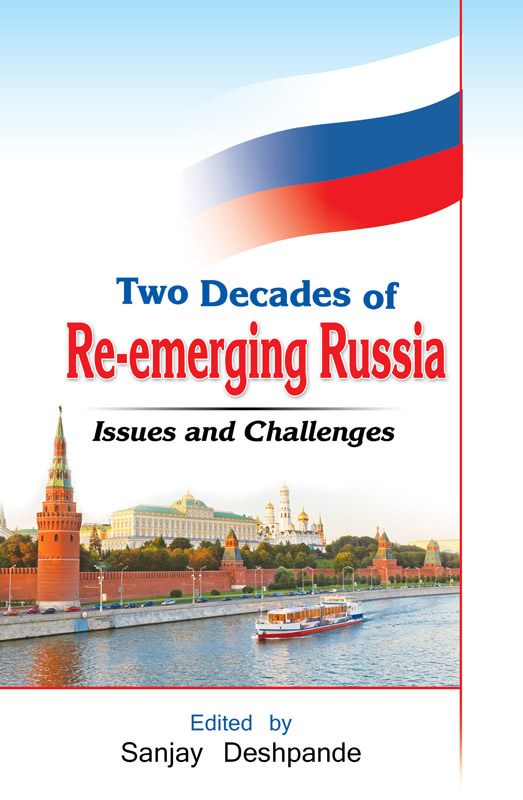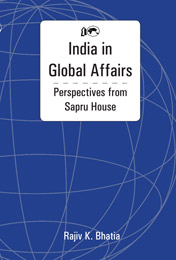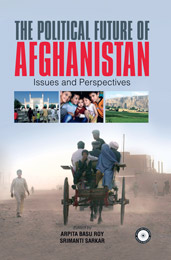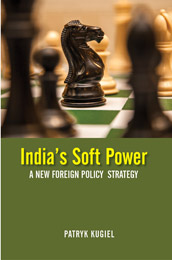Russia has been re-emerging as a major political and economic power during the last decade. The leadership of Russia claims that the objectives of transition from the former one-party socialist system to a plural multiparty democratic system and centralised planning to market economy are largely achieved. Russia is politically stable and has demonstrated how new political institutions, multiparty system are functioning under three presidents. In the initial years after the disintegration of the Soviet Union, the Russian economy passed through different phases such as crisis, boom and recovery. Russia has largely succeeded in managing its political and economic relations with “Near Abroad” which have witnessed considerable complexities over the last two decades. Russia has demonstrated that its bilateral ties with India in the political and defence sectors have been consistently cordial and close. However, trade and economic relations need to be strengthened.
Notwithstanding its major achievements, Russia has been facing several problems, both in its domestic front and in its foreign relations. Some of the major problems on the domestic front are: over centralisation of power, nexus between state authorities, oligarchs and the bureaucracy, growing menace of corruption, surging political reactions by political parties and some former powerful leaders on various political issues, growing social discontent, issues between different ethnic groups, widening economic disparities among various sections of society and regions. On the external front, Russia has conflicts of interest with some former Soviet republics such as Georgia, Moldova, Ukraine and the Baltic states. Russia’s relations with the US and NATO have been highly critical on political and security related issues.
There is a need for an objective and critical evaluation of how Russia has managed its domestic and foreign affairs after the collapse of the Soviet Union. What were the successes and failures of Russia in its policies and performance with regard to the social, political and economic developments in the country? This book is as attempt to assess those developments.
Sanjay Deshpande
Sanjay Deshpande has done his Masters and PhD from Peoples’ Friendship University of Russia, Moscow. His areas of interest are Soviet/Russian/Central Asian domestic affairs, foreign policy of Eurasian states, geopolitics in Eurasia. He has participated in many national and international conferences in India and abroad and published many articles on Eurasian affairs. He has authored/edited four books. Dr. Deshpande has organised a number of national and international seminars. He is a member of many committees of Mumbai and other universities. Currently he is the Director of Centre for Central Eurasian Studies, University of Mumbai.
Contents
Contributors
1. Role of Science and Technology in Russia’s “Rise”
Ajey Lele
2. The Eurasian Union (EAU) as a Strategic Prospect
Alikber Alikberov
3. Analysing Post-Soviet Politics: Issues and Challenges
Archana Upadhyay
4. BRICS: Reshaping the World Order?
Vinayak S. Deshpande
5. Redefining Indo-Russian Ties in the Era of Post-Cold War
Deepak Makhija
6. Democracy in Russia under Putin
Sanjay Deshpande
7. Post-Soviet Russia: Some Reflections and Reminiscences
Devendra Kaushik
8. Two Decades of Russia’s Economy: Growth and Challenges
R. G. Gidadhubli
9. “Power Being” and “Power Projection” of Russia in Central Asia
Farkhod Tolipov
10. Factors Hindering the Re-emergence of Russia Even After Twenty Post-Soviet Years
Mohd. Moazzam Ali
11. Emerging Trends in Russian Foreign Policy: An Overview
Raj Kumar Kothari
12. Indo-Russian Relations in the 21st Century
Chandrakant Yatanoor
13. The Two Decades of Recovering and Re-Emerging Russia in the Post-Soviet Era
N. K. Buwa
14. Russian University of Peoples’ Friendship (Moscow) The “Arab Spring” and Russia
Elena Savicheva
15. Putin and the Problem of Succession in Russia
Jeremy Smith
16. Silent Treatment
Kaustubh Kulkarni
17. The Political Processes in Contemporary Russia
Konstantin Kuryljov
18. Military Industry Complexes (MIC)
Liyaqath Khan
19. Indo-Russian Trade in the Post-Soviet Era: Its Potential, Problems and Prospects for the Future
Lalit Kumar
20. Russian Energy Sector
Manendra Sahu
21. Central Asian States and the Russian Federation
Mirzokhid Rakhimov
22. Russian Agriculture Sector in Post-Soviet Era: Changes and Challenges
Neelu Khosla
23. Ethnicity and Culture in Post-Soviet Russia
Preeti D. Das
24. Russia in the Post-Soviet Space
Ajay Patnaik
25. Russia and the World Trade Organisation
Rama Sampath Kumar
26. Indo-Russia Buttress Military Relationship in the Twenty-first Century
Ranjana Mishra
27. A Shift in Russia’s Far Eastern Strategy in the Post-Cold War Era
Shoaib Khan
28. From the Russian Far East to the Russian Far North: Ambitions and Constraints
Suchandana Chatterjee
29. Russian Pharma Industry and Indo-Russian Economic Relations (Pharma)
Surjeet Singh Patyal
30. Theoretical Inconsistency of Western Economic Reforms Conceptions in Post-Soviet Space
Kh. Umarov
31. Republic of Belarus and Post-Soviet Economic Cooperation
Viachaslau Menkouski
32. Asiatic Russia-Outer Asia: Interregional Cooperation in 1990s-2000s (Greater Altai Case)
Vladimir Boyko


 Political Science
Political Science



